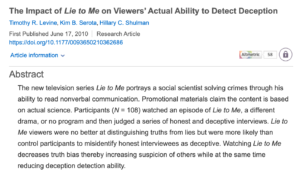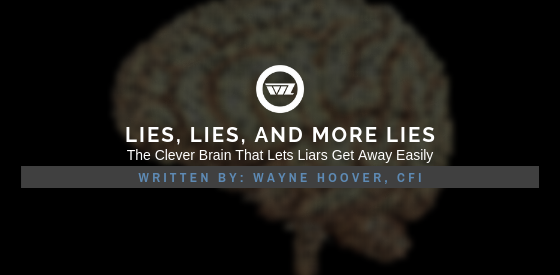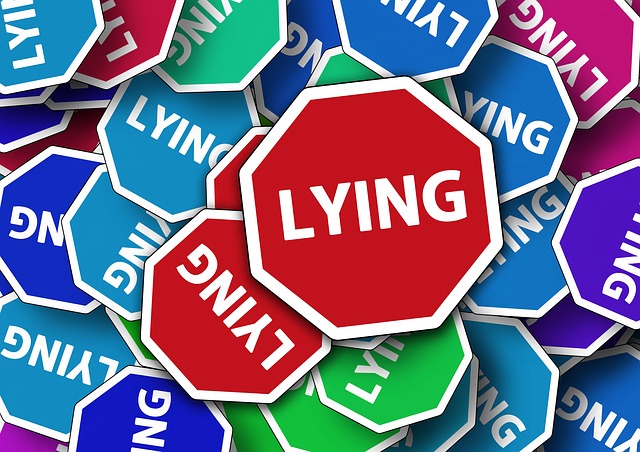 Guest blog by Craig James Baxter of Understanding Body Language. Liars, Cheats and Happy Feet
Guest blog by Craig James Baxter of Understanding Body Language. Liars, Cheats and Happy Feet
During a trip to my local garden centre, I noticed this sign for sale. We didn’t buy it, but I did mention to my wife that this statement is often correct and promised that I would write an article about why that is. So here it is! The theory that the longer the explanation the bigger the lie does indeed have research attached to it, with many eminent psychologists suggesting there are often more verbal than visual clues to deceit when the stakes (consequences) are high.
When you’re assessing credibility (or a lack of it) listen for someone struggling to recall very basic information and keep an ear out for someone giving you an abundance of irrelevant information rather than focusing on what actually happened, as this form of ‘attempted behavioral control’ helps to keep you distracted away from wherein their story the deceit occurs (as in the longer the story, the more creative they’ve been in hiding the truth from you).
Furthermore, as the irrelevant details mount up, this can make them appear ‘chatty’ and can give the impression that they seem ‘credible’, especially if their delivery is flamboyant and well spoken. It’s worth remembering that many liars simply do get away with their deceit because their target is more focused on LOOKING for deceit (such as observing for eye movements/aversion) and may simply forget to actively LISTEN to the actual spoken content.
With this in mind, when you are assessing the credibility of a story, be sure to remember that skilled and habitual (practiced) liars will often conceal information rather than present false information as if it were true. This method is frequently preferred by liars, as this allows them to tell the truth up to the certain point, skip over their indiscretion (the lie) and resume telling the truth. This is known as a ‘text bridge’ and these are key words that can indicate that there might be a gap in their story, I.e. the information they don’t want you to know. Key words such as ‘and then’, ‘shortly after’, ‘later on’, ‘the next thing I remember’ all help span time and skip over and keep something hidden without sounding suspicious. The next time you have your suspicions, shrewdly listen for these words, they could help you pin point an area which they have intentionally left out.
A special mention needs to be given to eye movements. Focusing on eye movements will seriously impair your ability to detect deceit. Modern day research (Vrij, Porter, DePaulo) have all concluded that the eyes themselves do not provide reliable information regarding deception. Examining the wrong cues to deception could have serious ramifications, such as labelling a truth teller as a liar because they habitually looked ‘up and right’ when in fact their statement was honest. Many lie catching guides enthusiastically claim that eye movements can reveal the difference between a fictitious event and a truthful memory; however these claims have again been widely disputed by eminent professors of psychology.
Remember, truthful people simply convey facts. Liars have to remember the facts, distort or conceal them & appear credible in their delivery.
Never forget, the devil is in the details!



 What is the Societal Impact of the Show?
What is the Societal Impact of the Show? Where can I watch Lie to Me?
Where can I watch Lie to Me? By Wayne Hoover, CFI.
By Wayne Hoover, CFI. 